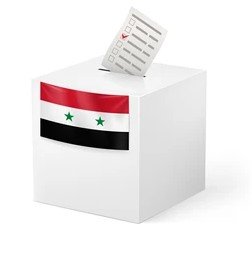As Iraq gears up for its parliamentary elections on November 11, 2025, politicians walk a tightrope between regional powers. Candidates must avoid any hint of support for Israel to stay in the race, while showing distance from Iran signals true political independence in a nation long caught in foreign influences.
This vote for 329 seats marks Iraq’s seventh election since 2003, set against a backdrop of Middle East tensions. Prime Minister Mohammed Shia al-Sudani seeks a second term amid pressures from the United States, Iran, and Israel, with voters watching how leaders navigate these forces to build a more sovereign Iraq.
Election Landscape and Key Players
Iraq’s political scene buzzes with over 1,700 Shiite candidates alone, making this one of the most competitive races in years. The ruling Shia Coordination Framework looks strong, but splits among factions add uncertainty.
Prime Minister al-Sudani has boosted his chances by adding nearly one million new government jobs, creating a loyal voter base. Yet rivals like former Prime Minister Nouri al-Maliki push back, stressing national independence over old alliances.

Muqtada al-Sadr, a powerful Shiite cleric, has chosen to boycott the vote through his Patriotic movement. This decision leaves a gap that other groups aim to fill.
The Kurdish and Sunni blocs also play key roles, likely forming alliances in the post-election government. Analysts predict a consensus setup, but low trust in the system could keep turnout below 40 percent.
Pressures from Iran and the Push for Distance
Iran has long shaped Iraqi politics through allied militias and economic ties. But recent events, including Israel’s strikes on Iranian proxies since 2023, have weakened Tehran’s grip.
Many candidates now openly distance themselves from Iran to appeal to voters tired of foreign meddling. Al-Maliki, once a close Tehran ally, now campaigns on putting Iraq first.
This shift reflects broader changes. Iraq’s oil wealth has grown, with production hitting over four million barrels per day in 2025, giving leaders more room to assert control.
Yet Iran still influences through armed groups. Some politicians warn that Tehran could try to sway the vote, but U.S. efforts aim to curb this.
- Key ways Iran influences Iraq: Economic aid, shared border trade worth billions, and support for Shiite militias.
- Signs of declining influence: More Iraqi leaders criticize Iran’s role in regional conflicts, and public protests demand full sovereignty.
Israel’s Shadow and Anti-Normalization Laws
Any perceived sympathy toward Israel can doom a campaign in Iraq. A 2022 law bans normalization, with penalties up to life in prison, making it a toxic issue.
Accusations fly, like lawmaker Ibrahim al-Sumaidaie’s claims that rivals court U.S. pressure to join the Abraham Accords. These pacts, started in 2020, normalized ties between Israel and several Arab states, but Iraq stays out.
Former Prime Minister Ayad Allawi has denied such links, reaffirming opposition to Israel. The ongoing Iran-Israel conflict, with recent strikes and misinformation campaigns, heightens sensitivities.
Voters see anti-Israel stances as a test of loyalty. This dynamic forces candidates to balance rhetoric carefully.
US Influence and Regional Dynamics
The United States pushes Iraq to rein in pro-Iran militias and build stability. With American troops still in the country, Washington seeks a government less tied to Tehran.
Talks of Iraq joining the Abraham Accords surface, but face strong resistance. U.S. officials view the election as a chance to strengthen ties, especially with Iraq’s economy rebounding.
Recent events, like the 2025 Iran-Israel escalations involving fake videos and influence operations, add layers. Iraq aims to stay neutral, but geography makes it hard.
| Factor | US Influence | Potential Impact on Elections |
|---|---|---|
| Military Presence | About 2,500 troops advise on security | Pressures to disarm militias, boosting pro-US candidates |
| Economic Aid | Billions in reconstruction funds | Supports job growth under al-Sudani, aiding his reelection bid |
| Diplomatic Push | Encourages Abraham Accords | Risks backlash if seen as pro-Israel, hurting some campaigns |
| Counter-Iran Efforts | Sanctions and alliances | Helps candidates who distance from Tehran gain ground |
Challenges to Voter Trust and Turnout
Low voter turnout plagues Iraqi elections, with many citizens doubting real change. Corruption and division fuel this crisis of trust.
The 2021 election saw only 36 percent participation, and experts predict similar numbers this time. Young voters, hit by unemployment despite oil riches, feel especially disconnected.
Efforts to boost engagement include biometric voting cards and international observers. Still, violence and intimidation loom as risks.
Potential Outcomes and What Lies Ahead
A win for al-Sudani could mean steady governance, but a fragmented parliament might lead to prolonged talks. The new government will tackle infrastructure, like fixing power grids strained by demand.
Regionally, a more independent Iraq could shift Middle East balances, reducing proxy conflicts. Yet failure to address foreign influences risks ongoing instability.
As the vote nears, Iraq stands at a crossroads. Share your thoughts on how these elections might reshape the region, and join the conversation in the comments below.
